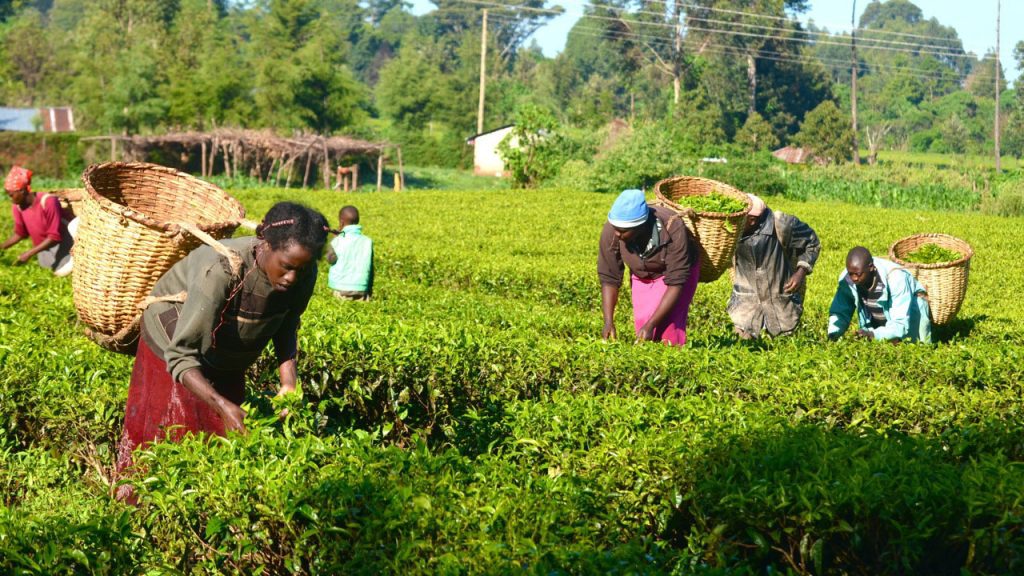Agriculture is important, as it provides food, clothing, and other essential products that we need to survive. In Africa, agriculture is even more critical, as it is a major source of livelihood for many people. Around 70% of the population in sub-Saharan Africa relies on agriculture for their income and food security. Moreover, agriculture is a key driver of economic growth and development in many African countries. It helps to reduce poverty, create jobs, and improve access to food and nutrition.
We need agriculture to feed the world as it provides a direct source of food. Crops and livestock raised on farms are used to produce the food that we eat. Agriculture is also a source of raw materials for the production of processed foods. For example, wheat is used to make flour, which is then used to make bread. It is also a source of inputs for the production of other food products. For example, corn is used to make ethanol, which is then used to produce biofuels. There are a few ways in which agriculture can help to reduce poverty. Firstly, agriculture provides a source of income for farmers. This income can be used to buy food, education, and other necessities.
Secondly, agriculture can help to create jobs in rural areas. This can help to reduce unemployment and poverty. Thirdly, agriculture can also improve food security by increasing access to affordable food. This is particularly important in developing countries, where many people struggle to get enough food to eat. In addition to providing income for farmers, agriculture also creates employment opportunities for many. For example, there are jobs in the processing and distribution of agricultural products. There are also jobs in the manufacturing of agricultural inputs, such as fertilizers and pesticides. Additionally, jobs can be created in the research and development of new agricultural technologies. And, there are also jobs in the marketing and advertising of agricultural products. According to media statistics, agriculture provides employment for about 60% of the world’s population. Agriculture also has a huge impact in tourism.
Today, many people visit farms to learn about how food is grown. This creates jobs for people, who work in the tourism industry, such as tour guides and restaurant staff. Additionally, agriculture also creates jobs in the education sector. There are jobs for people, who teach agricultural courses and conduct research on agricultural topics. There are several ways that agriculture can help to promote sustainability. Firstly, sustainable agriculture practices can help to conserve natural resources, such as water and soil. For example, methods like crop rotation and cover cropping can help keep the soil healthy and prevent erosion. Secondly, sustainable agriculture can also help reduce the use of pesticides and fertilizers. This is important because these chemicals can pollute the environment and harm human health.
Thirdly, sustainable agriculture can also promote biodiversity by encouraging the growth of a variety of crops. This helps to ensure that there is a balance of species in the environment. Would you like to know more? Let me inform you that agriculture helps to promote sustainability. Sustainable agriculture practices can help conserve natural resources, such as water and soil. For example, methods like crop rotation and cover cropping can help keep the soil healthy and prevent erosion. Accordingly, sustainable agriculture can also help reduce the use of pesticides and fertilizers. This is important because these chemicals can pollute the environment and be harmful to human health.
Furthermore, sustainable agriculture can also promote biodiversity by encouraging the growth of a variety of crops. This helps to ensure that there is a balance of species in the environment. Another way that sustainable agriculture can help to advance sustainability is by reducing greenhouse gas emissions. For example, methods like no-till farming can help reduce the amount of carbon dioxide released into the atmosphere. Additionally, increasing the use of renewable energy sources on farms can also help reduce emissions. Lastly, sustainable agriculture can also help create a more resilient food system by promoting local food production. This is important because it can help to reduce the reliance on imported food, which can be vulnerable to disruptions like natural disasters or political instability.



